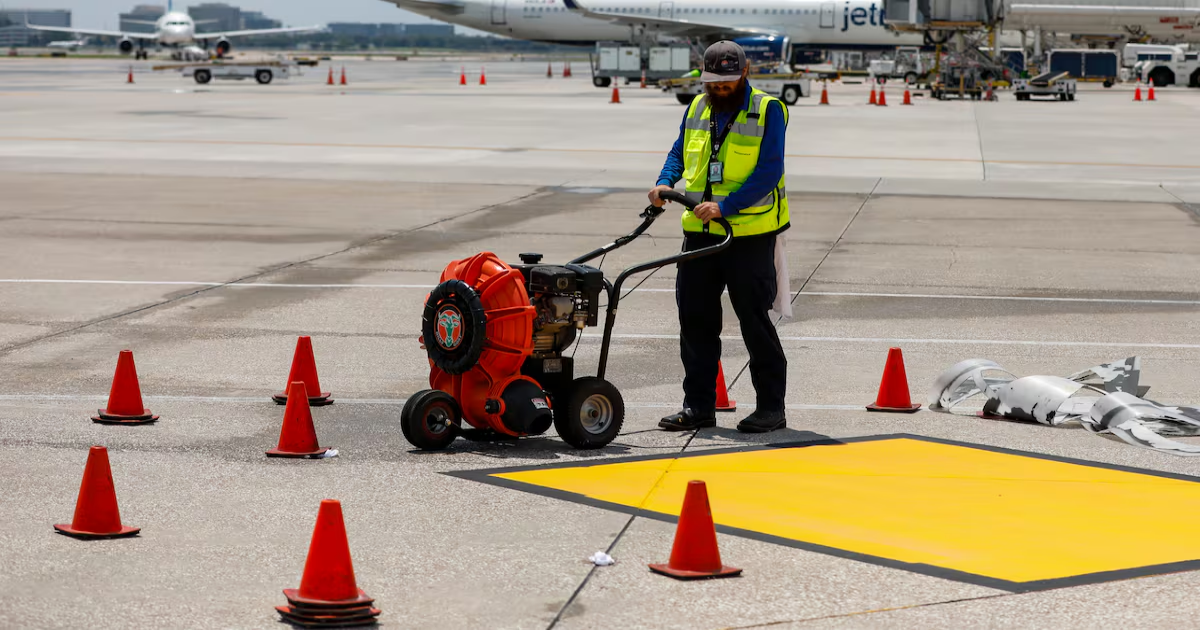TALLAHASSEE — Pointing to a lack of tests about whether the substances were marijuana or legal hemp, a state appeals court Wednesday tossed out a drug-trafficking conviction against a man stopped at Tampa International Airport after two duffel bags were found to include packages of “green, leafy” substances.
The ruling by a three-judge panel of the 2nd District Court of Appeal said airport police in 2022 intercepted the duffel bags after a flight from Denver. A drug-sniffing dog signaled the bags could contain drugs, and police found that each bag included 25 vacuum-sealed packages of green, leafy substances.
Pryce Campbell, who claimed the bags, was arrested and ultimately convicted on a cannabis-trafficking charge, Wednesday’s ruling said. Campbell, however, said he paid $50 apiece for the packages to a man from Oregon and thought they were hemp.
The conviction came after a law-enforcement analyst tested a sample from only one of the 50 packages. That sample weighed 24.47 grams and included illegal cannabis, the ruling said.
But in appealing, Campbell argued the one sample did not support a conviction of drug trafficking, which would require having between 25 pounds and 2,000 pounds of marijuana. The appeals court agreed, citing the inability to differentiate between marijuana and legal hemp without testing.
“Every witness who testified for the state admitted that they were unable to identify by appearance or odor alone whether the substance found in Campbell’s duffle bags was illegal cannabis or legal hemp,” said the ruling, written by Chief Judge Daniel Sleet and joined by Judges Patricia Kelly and Craig Villanti. “The detective handling the K-9 (police dog) testified that his K-9 could not identify whether the duffle bags contained cannabis, rather it could only alert to odors of illicit substances in general. The detective who stopped Campbell at baggage claim testified that he could not distinguish cannabis from hemp by sight or smell alone.”
The ruling said that in the past, it wouldn’t have been necessary to test samples from each package. But it said the legalization of hemp changed that.
“Now, however, because there is an identifiable danger of misidentification between legal hemp and illegal cannabis, where the contents of multiple packages are to be considered in proving the quantity of illegal cannabis, the state can no longer rely solely on appearance and odor to extend an inference of illegal cannabis to the remaining untested packets and must chemically test each packet of green, leafy substance to meet the threshold weight required for trafficking,” the ruling said. “To hold otherwise and allow the state to rely on the identification of similar packages of a green, leafy substance by appearance and odor alone would undermine a defendant’s presumption of innocence and erroneously negate the state’s burden to prove the identity and weight of the alleged substance.”
Subscribe to our free News Alerts newsletter
You’ll receive real-time updates on major issues and events in Tampa Bay and beyond as they happen.
Campbell was sentenced to three years in prison because of the trafficking conviction, the ruling said. The panel ordered a circuit judge to reduce Campbell’s conviction to a drug possession charge and resentence him.
By Jim Saunders, News Service of Florida
